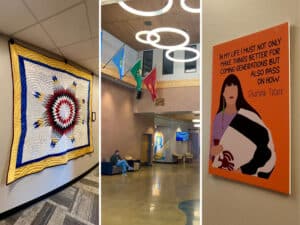FOR IMMEDIATE RELEASE
Contact: Jill Baker, Executive Director, 406-564-3602, jill.baker@humanitiesmontana.org
Last week, Humanities Montana became the latest casualty of budget cuts when we received an email informing us that our federal grant funding had been terminated immediately. These cuts will have a devastating impact on the artists, authors, philosophers, poets, actors, performers, and historians who contribute to Montana’s vibrant cultural and educational landscape.
“Humanities programs are in museums, libraries, community centers, parks, and educational institutions, including public, private, and homeschool settings across Big Sky country,” said Jill Baker, Humanities Montana Executive Director. “Most of our funding goes to programs in rural communities like museums and libraries. It’s an essential part of building vibrant communities.”
Humanities Montana receives most of its funding from grants from the National Endowment for the Humanities (NEH) to support grantmaking and Montana Conversations and Speakers in the Schools. Last year, NEH funding reached all 56 counties in Montana through libraries, museums, community organizations, colleges, and schools. The impact of Humanities Montana funding is particularly significant in rural areas, where other grant funding is limited.
“Investing in our communities has always been a point of pride for Montanans, and most of us have benefitted from a grant from Humanities Montana,” said Baker. “We hope everyone will join us in emphasizing the importance of this funding by reaching out to Montana’s US Senators and Representatives, discussing with your friends why the humanities are significant to you, or finding creative ways to safeguard this funding and the programs and individuals it supports.”
For more than 50 years, the U.S. has invested in humanities initiatives that promote lifelong learning, educate our citizens to think critically, and foster an understanding of our history, the human experience, and our neighbors.


